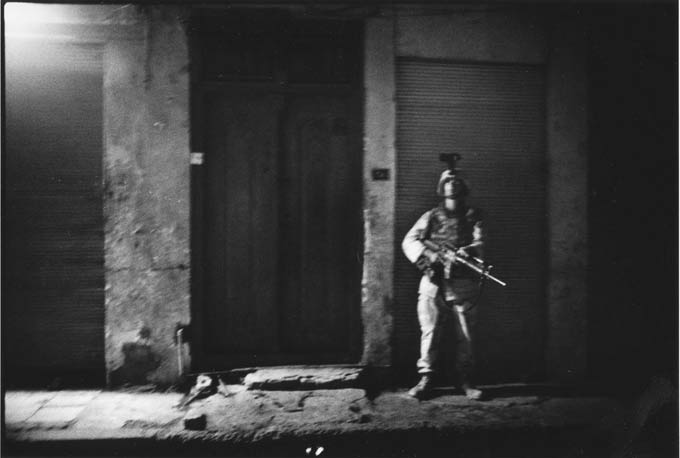President George W. Bush ordered his troops not to defecate until the end of the War. Coyote ignored this order. Coyote took a big dump in the Abu Ghraib prison. Coyote deprived his turds of sleep and interrogated them to find the true source of terror. Coyote’s turds escaped and circled the globe as digital images. President George W. Bush said, “These are not the real American turds. The real American turds are the friends of freedom.” Behind the white doors of the White House the president lay on his bed dreaming the dream of Preemptive Good. This irritated Coyote, who smeared the sheets with dog shit. President George W. Bush ran from the White House crying, “I have soiled myself! I have soiled myself!” The Secret Service felt ashamed and went to share their tobacco with other government agencies. Coyote sneaked into the basement of the White House where lies the swimming pool that holds the Waters of Democracy, hidden since the days when Andrew Jackson made it so difficult for Seminole Indians to vote in the state of Florida. Coyote drank long and deep from the Waters of Democracy. When Coyote’s bladder was full he went on his way, marking the trail.
—May 2004, Sapporo, Japan (with revisions, 2013)
I wrote this prose poem while at a Japanese conference on trickster stories—tales that convey wisdom through a magical, mischievous creature. Trickster figures are often the enemies of any impulse toward perfection or purity. When it comes to the polarity between clean and dirty, most of us stick to the clean, rigorously separating ourselves from our wastes. As sensible as that may be, it can limit our range of motion. Coyote, the trickster protagonist of many Native American stories, with a decidedly scatological streak, suffers no such limits. He has the great mobility of those who are well acquainted with fecal matter.
As for the war in Iraq, it was never clear how the laudable goal of creating a democratic nation in the Middle East was to be accomplished. When Thomas Jefferson helped draft the Declaration of Independence he said it was “intended to be an expression of the American mind.” The document persuaded because it articulated what the colonists already took to be the truth. It derived “all its authority,” Jefferson said, from “the harmonizing sentiments of the day.”
Democracy needs local, fertile ground for its seeds to sprout. It can never be imposed by foreign power and those that try to impose it are bound to be haunted by events (like the torture and humiliation of prisoners) that are the very opposite of their expressed intentions. The impulse to improve the world always carries a shadow side.
I once had an angry e-mail from a man who had found some animal scat in his backyard and, in hopes of identifying it, had typed “coyote turds” into a search engine only to find my poem. He wrote to chastise me for insulting the president and the troops. The desire to believe that we are agents of good in the world runs very deep in the American psyche and it’s no surprise that calling that belief into question can be felt as an insult. But the wisdom carried by the old Coyote stories is difficult to suppress. I checked recently: if you Google coyote and turds, you get almost half a million hits. “Coyote Installs Democracy” has floated to the top, reaching number three among all of those hits.
This piece, commissioned by Creative Time Reports, has also been published by Guernica.


